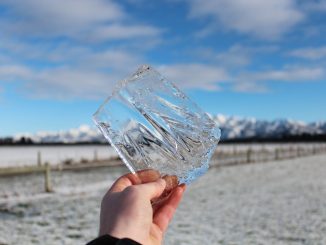MINNEAPOLIS, 16th November – Recent Farm Bill proposals to expand crop insurance for U.S. farmers have failed to acknowledge threats to agriculture from climate change, finds a new report from the Institute for Agriculture and Trade Policy (IATP).
In their report, “A Risky Proposition: Crop Insurance in the Face of Climate Change,” authors Julia Olmstead and Jim Kleinschmit argue that crop insurance expansion without climate adaptation for agriculture would threaten food security and farmers’ livelihoods, while increasing costs for taxpayers.
“Agriculture is extremely vulnerable to the effects of climate change,” said Kleinschmit. “Farmers need support to make their land more resilient to floods, droughts and the other pressures climate change brings. Revenue insurance proposals help farmers financially cope with disasters, but do nothing to help them minimize risk in the field.”
Research indicates that diversified farms that incorporate livestock and perennials are more resilient than single-crop farming systems to the increases in flooding, drought and pest invasions associated with climate change. Current federal crop insurance programs, and the “shallow-loss” revenue insurance programs that have been proposed for the 2012 Farm Bill, discourage crop diversification and encourage farmers to take on unwieldy amounts of risk.
A better option, says the report, would be for farmers participating in federal crop insurance programs to practice “climate compliance,” in which they would work with the Natural Resources Conservation Service (NRCS) to develop a whole-farm plan to increase climate resilience and receive support via Farm Bill conservation programs to implement the plan. This cost-savings plan would help curb the risk of large federal outlays on insurance payouts and would leverage already existing Farm Bill programs such as the Conservation Stewardship Program and the Environmental Quality Incentives Program.
“It’s shocking that amid all the discussion of crop insurance expansion, no one is talking about the reasons why farmers need more protection from risk,” said Olmstead. “This year’s severe droughts and floods should be clear indications that if we don’t take steps to help farmers protect their farms from climate change, we’re not only putting the federal budget at risk, but our entire food supply as well.”
IATP supports policies in the U.S. and internationally that help farmers adapt to the effects of climate change and will be producing an upcoming web series profiling farmers who have withstood extreme weather by building resilience into their farming systems
Find the report on the ARC site here




